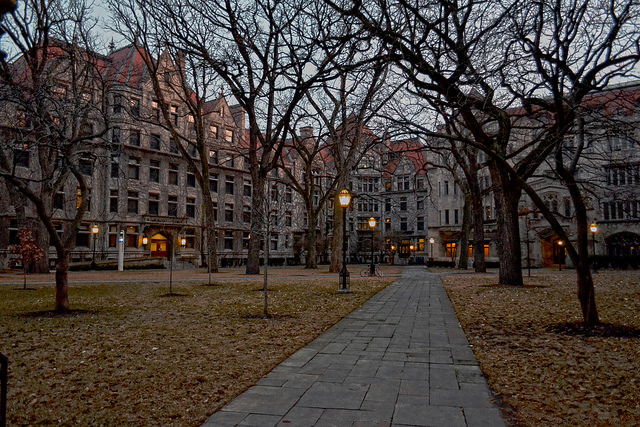University Of Chicago To Open New Global Institute With $100 Million Donation
By Rachel Cromidas in News on Sep 30, 2015 3:25PM
The University of Chicago has been gifted with $100 million to open a new global institute meant to research violent conflict and terrorism abroad.
The Pearson Institute for the Study and Resolution of Global Conflicts, as it's been dubbed, will be folded into the university's school of public policy and will also host an annual forum for international policymakers, the university announced Wednesday.
The Pearson Institute is slated to open in 2016. The $100 million gift, one of the biggest single donations the Hyde Park university has ever received, comes from the Thomas L. Person and the Pearson Family Members Foundation.
"The study of global conflicts is a field ripe for groundbreaking research approaches, and the Pearson Institute will seek to inform more effective policy solutions for resolving violent conflicts to make a lasting impact around the world," University Of Chicago President Robert Zimmer said in a statement.
Foundation chairman Thomas Pearson said in a statement that he chose the university because of its history of rigorous inquiry used to tackle "society's toughest problems." University officials said they hope the institute will also further Chicago's image as a "global city"—a recent goal of City Hall.
The school will appoint a director, faculty to fill four endowed chairs, and provide fellowships for master's degree and doctoral candidates, according to the Tribune.
Richard Haass, the president of the Council on Foreign Relations, told the Tribune that he envisions the institute bridging the gap between academics and the State Department.
"There is no shortage of conflicts for this institute to focus on," said Haass, who has been recognized for his efforts to promote international peace and conflict resolution. "There is a much greater need for people to think creatively about the problems caused by weak states. We need fresh thinking about what to do about a whole different category of class of conflicts that are taking place within countries rather than between them."
